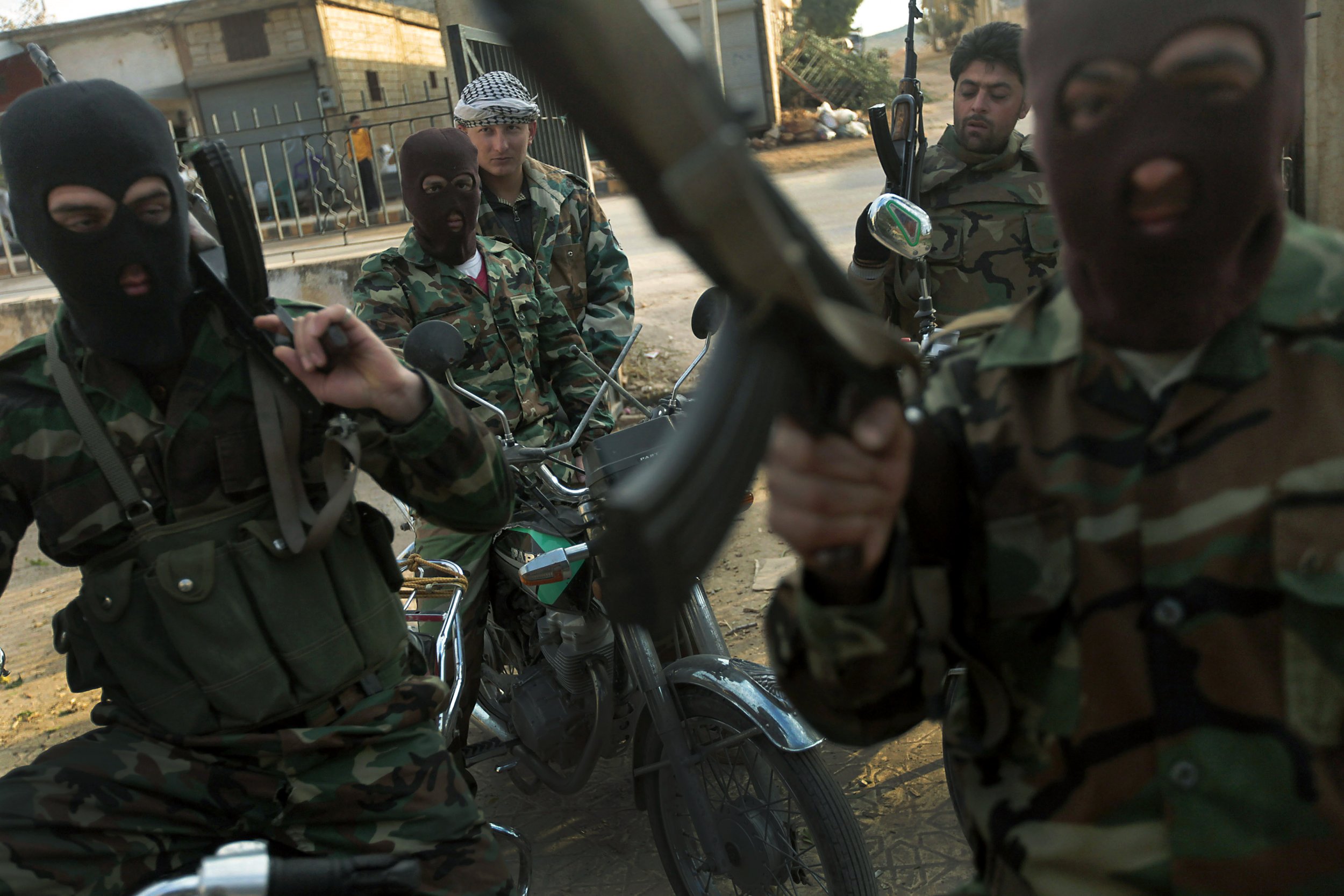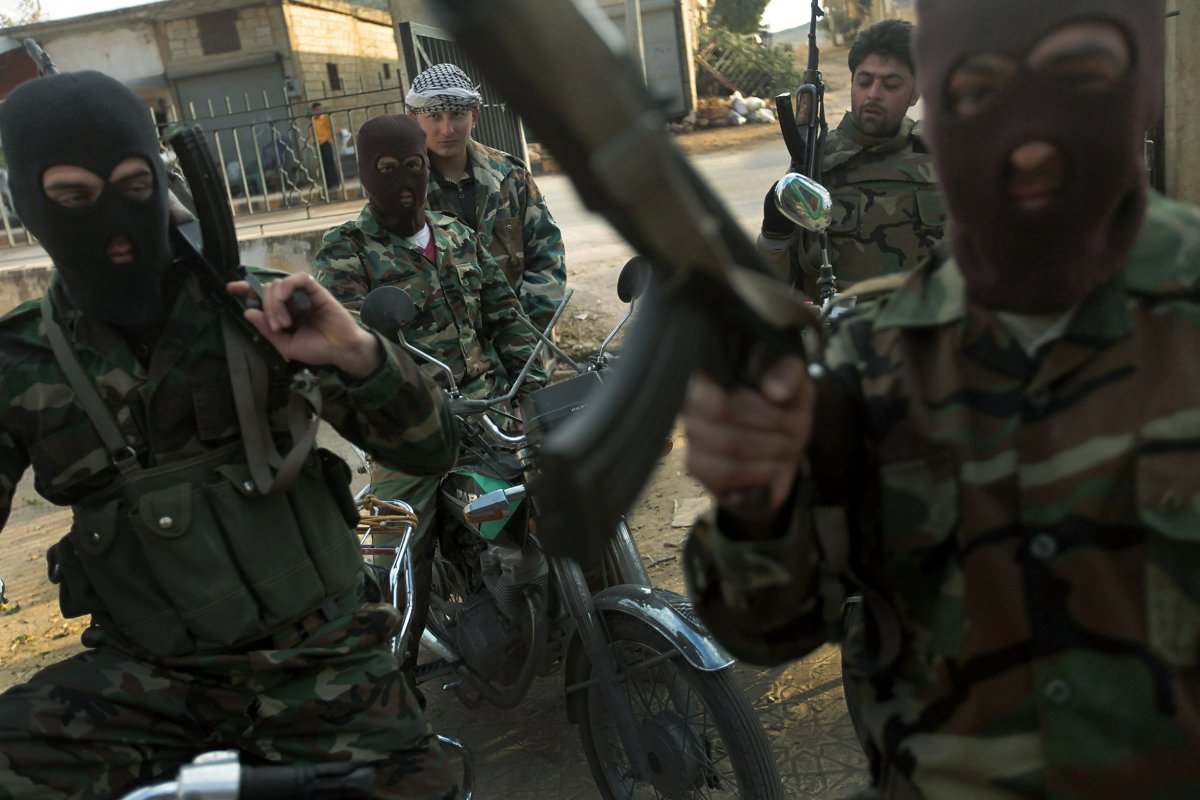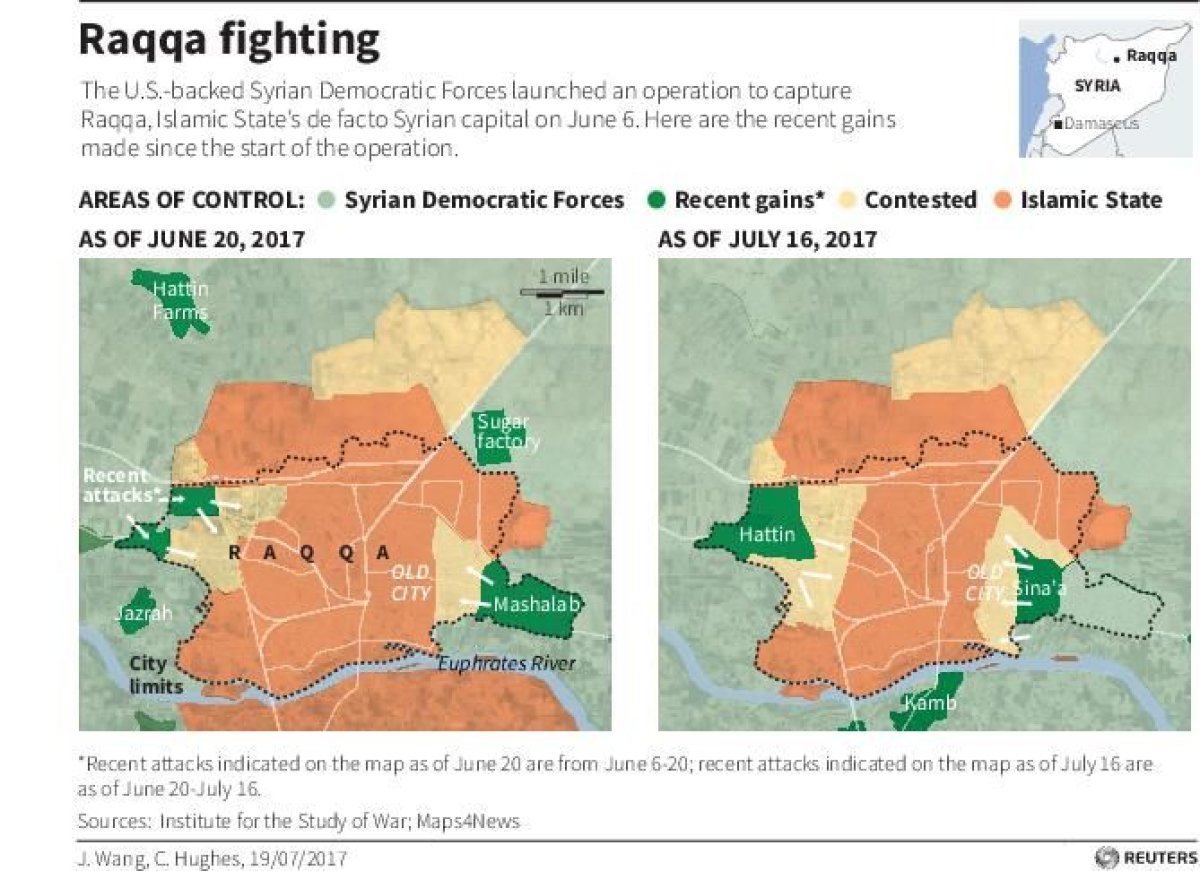
A Russian senator has praised reports that President Donald Trump has decided to end a covert program designed to support Syrian rebels attempting to overthrow their government.
Citing unnamed officials in the Trump administration, The Washington Post reported Wednesday that the White House ended a controversial CIA-backed effort to train and equip insurgents opposed to Syrian President Bashar al-Assad. The report was later corroborated by The New York Times, BBC News and other major outlets, many of which drew a connection between the decision and a recent meeting between Trump and his Russian counterpart, President Vladimir Putin, who is an avid supporter of Assad and his armed forces. A day after the news broke, Russian senator Konstantin Kosachev expressed his own views on social media.
Related: U.S., Russia and Iran battle to build bases in Syria as ISIS falls
"Certainly, this is the long-awaited and excellent news. No doubt, such a turn creates new opportunities for Russian-U.S. cooperation in anti-terror in that country," Kosachev, who heads the international affairs committee of Russia's upper house of parliament, wrote on Facebook in a post translated by the state-run TASS Russian News Agency.

Kosachev went on to criticize the U.S. plan to support "so-called moderate" militants, who first received only non-lethal aid during the early days of the 2011 uprising against Assad, but by 2013 had begun receiving weapons and training as part of a secret CIA program under former President Barack Obama. The program was scaled back and suspended at various times due to worries that jihadist groups such as the Islamic State militant group (ISIS) and Al-Qaeda had gained too much influence over rebel ranks, leading to major defeats and defections from CIA-backed groups to other, more hard-line militant organizations.
Years before entering the presidential race, Trump became an early critic of the CIA program. The social media savvy billionaire posted tweets as early as May 2013 criticizing both Democratic and Republican officials for endorsing the Syrian opposition. As he rose to political prominence, Trump appeared to align his views on the Syrian conflict with Russia, which staged a direct military intervention in Syria at Assad's request in 2015. The relationship between Trump and Putin has since fallen under scrutiny after accusations emerged that Trump's campaign colluded with the Kremlin to influence the U.S. 2016 presidential race in Trump's favor, a charge both leaders deny.
Washington and Moscow fell out in April when the former accused Assad of ordering a chemical weapons attack on civilians, a charge both he and Russia deny. Trump responded by ordering the U.S.'s first intentional attack on the Syrian military days later and further infuriated Russia with a series of attacks on other pro-government forces in May and June. After meeting at the G-20 summit in Germany earlier this month, however, the two appear to be attempting a rapprochement, which has already produced a cease-fire between the Syrian military and rebels battling in southwest Syria.
The Pentagon continues to support another irregular group of fighters known as the Syrian Democratic Forces. The majority-Kurd coalition of Arabs and ethnic minorities is deeply involved in battling ISIS in the group's de facto capital of Raqqa in northern Syria. These militants have both clashed with the Syrian military and allied with it against rebels in the past, but tensions have remained high between the two factions recently as they both battle ISIS around Raqqa, contending for territory and a greater role in Syria's future. In addition to Moscow, Kurdish analysts such as Diliman Abdulkader also welcomed the decision to end U.S. support for rebels, many of which are backed by the leading opponent of Kurdish national aspirations, Turkey.

"The decision by the president to end funding for Syrian rebels indicates the effectiveness of the Syrian Democratic Forces throughout the war in Syria. The SDF's ability to weaken ISIS and prevent the Assad regime from gaining further territory in the north proves to be the best solution in this fight for the U.S.," Abdulkader told Newsweek.
"Arab rebels have not been effective and are much too divided, which weakens the campaign against ISIS. Kurds have proven to be loyal and reliable allies in the long term sense, and investing in Kurds allows the U.S. to have a stronger stance against Russia, which failed under the previous administration. The Kurds are looking for a long term relationship with the U.S. aside from military ties," he added.
For Syrian rebels, the move represents the latest blow after years of tactical defeats at the hands of both ISIS and the Syrian government, which has since largely focused its efforts on advancing eastward to secure the massive swathes of territory held by the jihadists. Meanwhile, various rebels groups have seen weeks of violent infighting as they contend for control over the northwestern governorate of Idlib.
Uncommon Knowledge
Newsweek is committed to challenging conventional wisdom and finding connections in the search for common ground.
Newsweek is committed to challenging conventional wisdom and finding connections in the search for common ground.
About the writer
Based in his hometown of Staten Island, New York City, Tom O'Connor is an award-winning Senior Writer of Foreign Policy ... Read more
To read how Newsweek uses AI as a newsroom tool, Click here.






